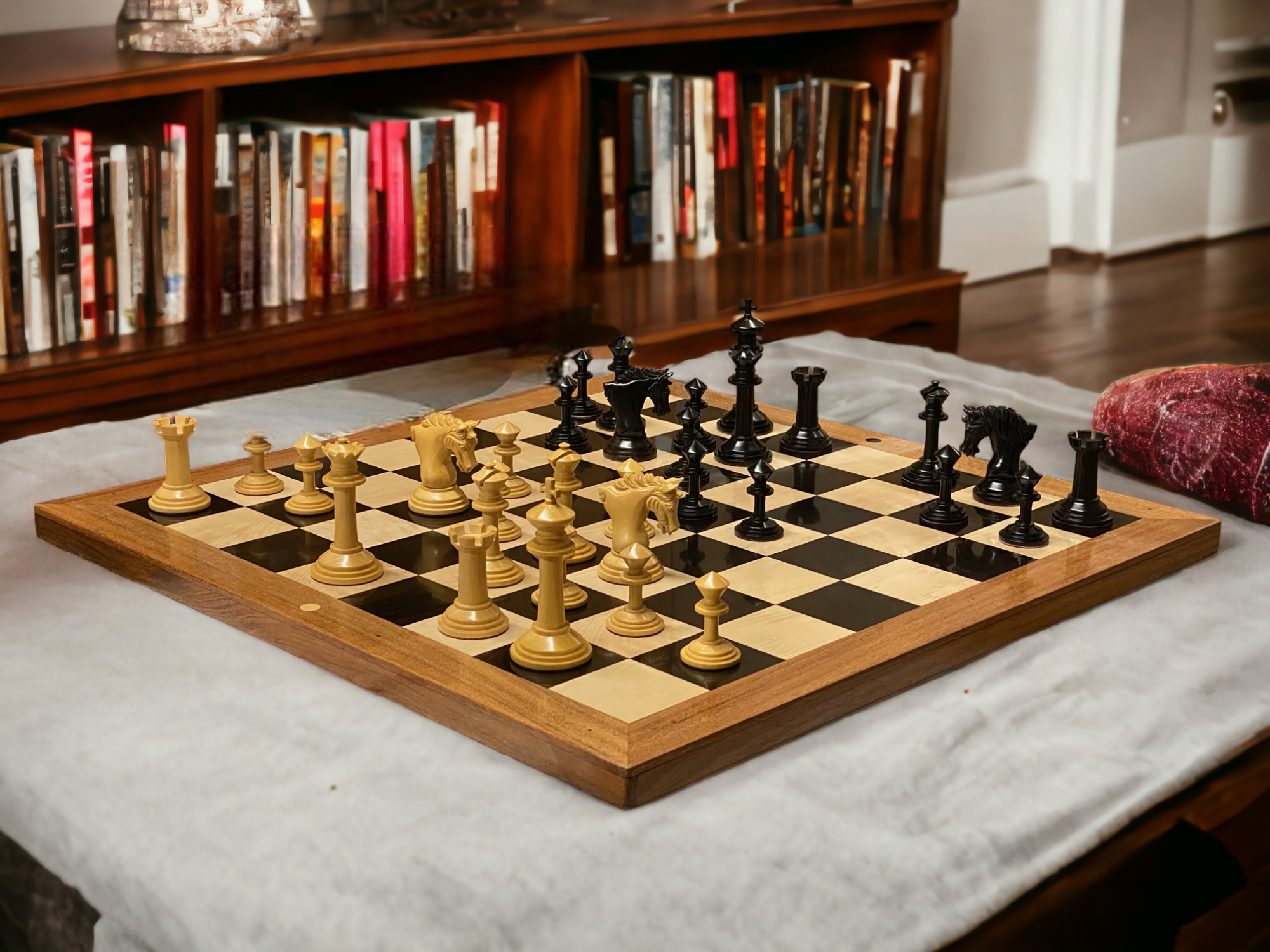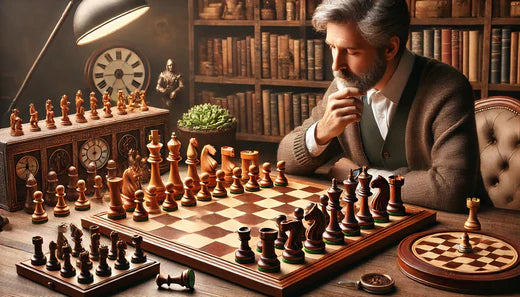Chess is often viewed merely as a strategic game for leisure, but a closer examination reveals its profound implications for cognitive development. In today's fast-paced world, where distractions abound, understanding the relationship between chess and cognitive skills is more crucial than ever. This article delves into how playing chess, particularly with beautifully crafted ebonised chess pieces, can enhance various cognitive abilities, making it an essential pursuit not just for enthusiasts but for anyone interested in mental growth.
The Cognitive Benefits of Playing Chess
Chess is a game of strategy that requires players to engage in complex thought processes. The act of planning, anticipating, and making decisions on the chessboard cultivates several cognitive skills, such as:
- Problem-Solving Skills: Each game presents new challenges that require players to devise creative solutions.
- Critical Thinking: Assessing different moves for potential outcomes enhances one's ability to evaluate situations effectively.
- Memory: Remembering previous games and recognising patterns strengthens memory retention.
- Focus and Concentration: The demands of the game train players to maintain focus for extended periods.
Problem-Solving Skills
Chess is often likened to a battle of wits. Each piece has its role, and the strategies players employ can vary greatly. This dynamic nature of the game encourages players to think on their feet and solve problems efficiently. The very essence of chess is about navigating through challenges and finding the best path forward.
Critical Thinking
When a player contemplates their next move, they are not merely looking for the immediate benefits but also weighing potential pitfalls. The game fosters an environment where decision-making processes are layered and multifaceted, enhancing a player's overall critical thinking abilities.
The Role of Memory in Chess
Effective chess players often demonstrate an impressive ability to remember not only their own strategies but also common openings and opponents’ moves. This reliance on memory to recall past games and strategies sharpens cognitive skills, enabling players to process and retain information more effectively in other areas of life.
Enhancing Memory through Repetition
The repetition of strategies and scenarios much like those that emerge with ebonised chess pieces not only improves memory but adds depth to a player's understanding of the game. Whether it involves mentally rehearsing openings or visualising endgames, memory becomes a key player in a chess enthusiast's development.
Focus and Concentration: Chess as a Mental Exercise
Playing chess requires intense concentration. With each turn, players must dedicate their focus to their opponent's moves while formulating their strategy. Over time, this exercise in concentration can translate into improved focus in daily life—a vital skill in today’s age where distractions are rampant.
The Neuroscience behind Focus Improvement
Studies in neuroscience indicate that regular engagement in activities requiring intense focus can lead to physical changes in the brain. As chess players often dive deep into their mental processes, they train their brains to build pathways that enhance concentration, thereby leading to better mental resilience in other cognitive tasks.
Emotional and Social Development through Chess
Beyond cognitive benefits, chess also plays a significant role in emotional and social development. The game fosters patience, sportsmanship, and even social skills—especially when played in group settings.
Learning Patience
Chess teaches players patience as they wait for their turn and consider various outcomes before making a move. This ability to stay composed and think ahead is an invaluable life skill that transcends the chessboard.
Building Social Connections
Participating in chess clubs or tournaments creates an avenue for social interaction. Players connect with others who share a similar passion, fostering friendships and community. The use of ebonised chess pieces during these interactions can also spark conversations and interest while enhancing the aesthetic of the game environment.
Chess in Educational Settings
Many educational institutions have begun incorporating chess into their curricula to leverage its cognitive benefits. Studies suggest that students who engage in chess regularly show improved academic performance, especially in mathematics and sciences, due to the skills acquired from the game.
Chess as a Tool for Academic Success
Chess encourages logical reasoning and the ability to think abstractly—skills that are directly applicable to academic disciplines. By integrating chess into learning environments, teachers can help students strengthen their problem-solving abilities while making learning enjoyable.
The Lifelong Benefits of Chess
The cognitive, emotional, and social benefits of chess are not limited to childhood. Engaging with the game offers lifelong growth opportunities, helping individuals maintain cognitive abilities well into old age. Research suggests that older adults who play chess demonstrate lower rates of dementia and cognitive decline.
A Game for All Ages
Despite being a complex game, chess is accessible to people of all ages. Whether you're teaching children the basic rules or playing advanced strategies with seasoned players, chess offers a rich environment for learning and growth.
Creating a Chess Culture at Home
Incorporating chess into family activities can be an enjoyable way to strengthen relationships and foster an environment that values cognitive development. Setting up family chess nights allows members to bond while developing essential thinking skills.
Making Chess a Family Tradition
Gathering around a chessboard with ebonised chess pieces adds a touch of elegance and sets a respectful tone for family games. Celebrating victories and learning from defeats together can cement family ties while instilling a competitive yet supportive spirit.
The Future of Chess and Cognitive Development
As research continues to unveil the extensive relationship between chess and cognitive development, the game is becoming increasingly recognised as an essential mental workout for people of all ages. The future will likely see chess being integrated into more educational and social frameworks, increasing awareness of its advantages.
Encouraging Further Research
While many studies have confirmed the positive relationship between chess and cognitive development, further inquiries can always add depth to our understanding. As more people discover and embrace the joy of chess, particularly with ebonised chess pieces, we can expect ongoing discussions and revelations in the field.
Join the Chess Revolution
Whether you're a seasoned player or entirely new to the game, there’s no denying the lasting impact chess can have on cognitive development. With its multitude of benefits—from sharpening your mind to enhancing social skills—chess stands as a powerful tool for anyone eager to improve their mental faculties. So, get your board ready, set up those stunning ebonised chess pieces, and embark on a journey to not just play the game but to fully harness its potential. Dive into the deep waters of strategic thinking and transformation, embracing the myriad benefits that only a few seem to recognise!
Step into the world of another store owner by visiting their captivating Shopify store. Click here to begin your journey. Kindly note that this is a promotional link, and we do not take responsibility for the content of the linked store.



